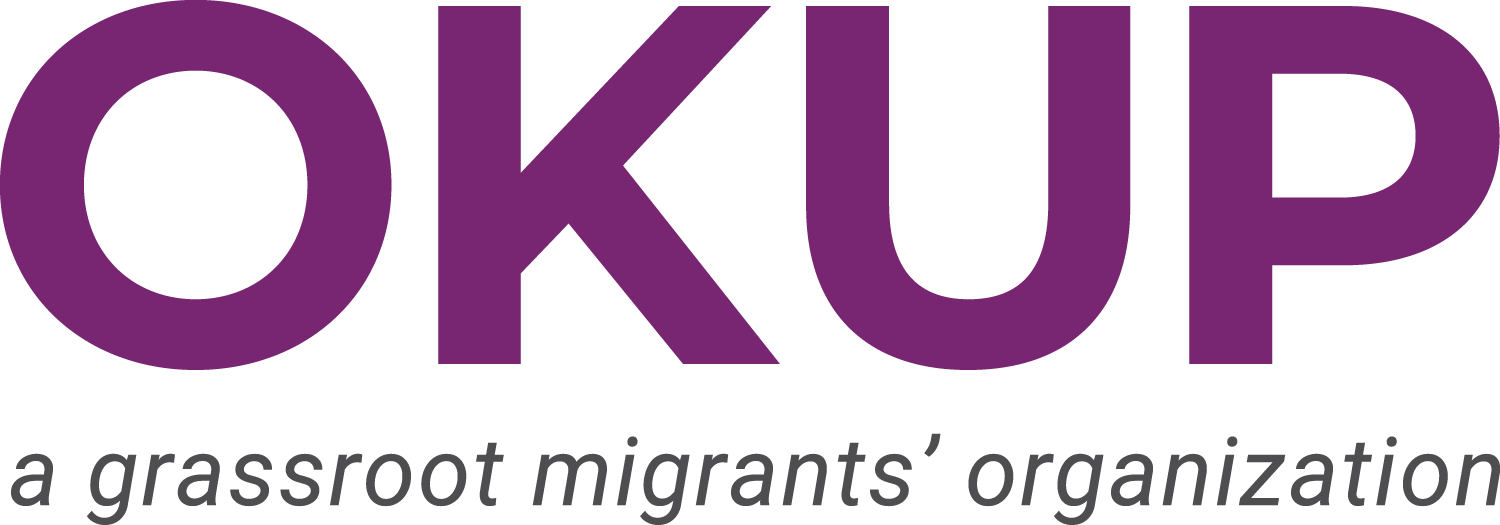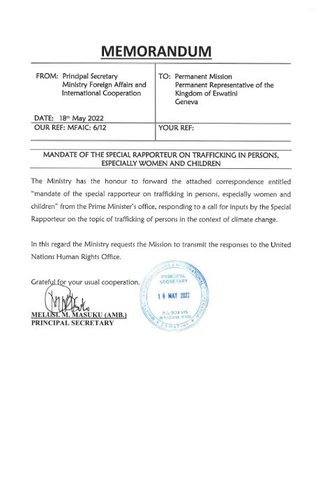Report for the United Nations Special Rapporteur on Trafficking in Persons, especially Women and Children
2022
- Author
- Principal Secretary Ministry Foreign Affairs and International Cooperation of Eswatini
- World region
- Sub-Saharan Africa
- Origin of migration
- Kingdom of Eswatini
- Area of transit
- No data available
- Destination of migration
- No data available
- Who is affected
- Children, Indigenous communities, Men, Women
- Type of climatic event
-
No data available
- Type of migration/mobility
-
No data available
- Destination industry or sector
-
No data available
- Type of modern slavery
-
Forced commercial sexual exploitation, Forced labour, Human trafficking
- Link between climate change, migration and modern slavery
- Indirect
- Key vulnerability factors
-
Vulnerability to forced labour and human trafficking is increased by the loss of housing, displacement and unemployment due to the effects of climate change.
- Summary
-
Eswatini's Report to the United Nations Special Rapporteur provides an overview of the government's understanding of and response to vulnerability to human trafficking for forced labour and commercial sexual exploitation, in the context of climate change.
- Recommendations
-
According to Eswatini's submission to the United Nations Special Rapporteur on trafficking in persons, especially women and children, responses to human trafficking should consider how climate change creates conditions conducive to human trafficking. It posits that the impacts of climate change should be taken into account in efforts to improve economic and social wellbeing to mitigate the risk of human trafficking. It also suggests that data collection and research on human trafficking should be improved.



